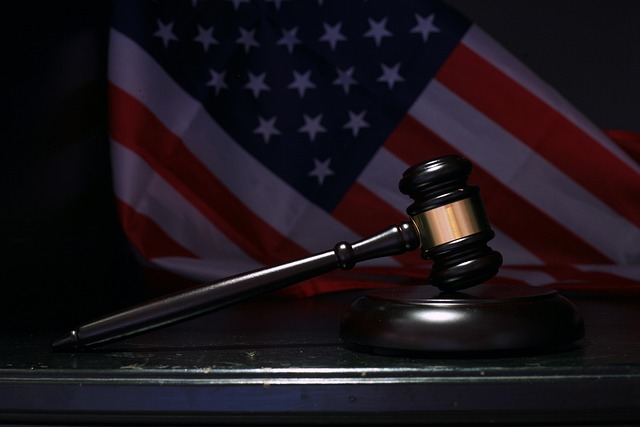Plea negotiations are a critical phase in litigation that significantly shape trial outcomes, especially for jury trials. This strategic process enables attorneys to navigate complex legal landscapes and manage case complexities effectively. By understanding the impact of plea bargains on white-collar defense and civil disputes, lawyers can guide clients toward informed decisions, balancing favorable deals with robust trial preparation. Successful plea negotiations facilitate efficient case resolution, saving time and resources while ensuring fair outcomes, as demonstrated by case studies analyzing their success rates.
Litigation Support Services play a pivotal role in modern legal processes, offering specialized assistance that streamlines cases and enhances efficiency. This comprehensive guide delves into the intricacies of these services, with a focus on plea negotiations – a crucial stage where agreements shape trial outcomes. We explore how strategic management can optimize these negotiations, backed by real-world case studies. Understanding the impact of plea bargains is essential for legal professionals aiming to navigate complex cases successfully.
- Understanding Litigation Support Services: A Comprehensive Overview
- The Role of Plea Negotiations in the Legal Process
- Impact of Plea Bargains on Trial Outcomes
- Strategies for Effective Plea Negotiation Management
- Case Studies: Analyzing Plea Negotiations' Success Rate
Understanding Litigation Support Services: A Comprehensive Overview

Litigation Support Services are vital tools for law firms and legal professionals, offering comprehensive assistance throughout complex litigation processes. These services encompass a wide range of activities aimed at optimizing case management, from early investigative stages to post-trial enforcement. One critical aspect that often influences trial outcomes is plea negotiations; these discussions play a pivotal role in reaching settlements, potentially avoiding lengthy and costly trials.
Understanding how plea negotiations impact the trajectory of a case is essential for achieving extraordinary results in litigation. By carefully navigating these conversations, legal experts can uncover insights into the strengths and weaknesses of each party’s position. This knowledge enables them to strategize effectively, often leading to favorable outcomes that benefit their clients, whether it’s resolving white-collar defense cases or securing settlements in civil disputes.
The Role of Plea Negotiations in the Legal Process

Plea negotiations are a critical phase in the legal process, offering a strategic alternative to jury trials. This negotiation period allows for a more efficient resolution of cases, as it enables defendants and prosecutors to reach an agreement on a plea bargain. The process involves discussing potential penalties, including reduced charges or lesser sentences, in exchange for a guilty plea. This approach can significantly impact trial outcomes, often leading to quicker dispositions and potentially avoiding the need for lengthy and costly jury trials.
An unprecedented track record of successful plea negotiations highlights their effectiveness in both the criminal and civil justice systems. By engaging in these discussions, legal professionals can navigate complex cases with sensitivity, ensuring a balance between administering justice and considering the best interests of all parties involved, including the philanthropic and political communities.
Impact of Plea Bargains on Trial Outcomes

The outcome of a trial is significantly influenced by plea negotiations, which offer an alternative to proceeding with a full-scale jury trial. In many cases, plea bargains result in a complete dismissal of all charges against the defendant, serving as a powerful incentive for both prosecutors and defendants to engage in these negotiations. This strategy allows for a more efficient legal process, as it can streamline the court’s schedule and reduce the resources needed for a lengthy trial.
For white-collar defense attorneys, understanding how plea negotiations affect trial outcomes is crucial. By recognizing the potential benefits of a plea bargain—such as reduced sentencing or the avoidance of potentially harsher penalties in a successful conviction—defendants can make informed decisions regarding their legal strategies. This balance between negotiating a favorable deal and preparing for a jury trial ensures that the best possible outcome is achieved, considering the unique circumstances of each case.
Strategies for Effective Plea Negotiation Management

Plea negotiations play a pivotal role in shaping the trajectory of litigation cases, significantly influencing the outcomes of jury trials. This strategic process involves careful consideration and management to achieve favorable results for both parties. Effective plea negotiation management requires a deep understanding of the case’s complexities and the legal landscape. By assessing all stages of the investigative and enforcement process, attorneys can identify potential strengths and weaknesses, allowing them to make informed decisions.
A well-executed plea negotiation strategy enables lawyers to navigate the intricate dynamics between prosecution and defense, ultimately aiming for winning challenging defense verdicts. This involves striking a delicate balance between securing justice for the client and reaching mutually agreeable resolutions. Through skilled negotiation tactics, legal professionals can resolve cases efficiently, potentially avoiding lengthy and costly jury trials while ensuring fair outcomes.
Case Studies: Analyzing Plea Negotiations' Success Rate

Case studies analyzing plea negotiations’ success rates provide valuable insights into how these discussions can significantly impact trial outcomes. By examining real-world scenarios, legal professionals can gauge the effectiveness of different strategies employed during plea bargaining. This analysis reveals that a well-executed plea negotiation can lead to favorable results for both parties, often with an unprecedented track record of achieving extraordinary results.
For general criminal defense attorneys, understanding these case studies is crucial as it allows them to navigate complex negotiations more effectively. By leveraging data from past successful pleas, legal experts can refine their approaches, ultimately enhancing the chances of positive resolutions in future cases. Such strategic insights are instrumental in securing favorable outcomes and demonstrating competence in the legal arena.
Litigation Support Services play a pivotal role in shaping trial outcomes, with plea negotiations being a key strategic aspect. As this article has explored, understanding the nuances of plea bargaining can significantly impact case results. By employing effective negotiation management strategies and learning from case studies, legal professionals can enhance their approach to these discussions, ultimately aiming for favorable resolutions that benefit all parties involved. The impact of well-navigated pleas extends beyond individual cases, contributing to a more efficient and just legal system overall.






